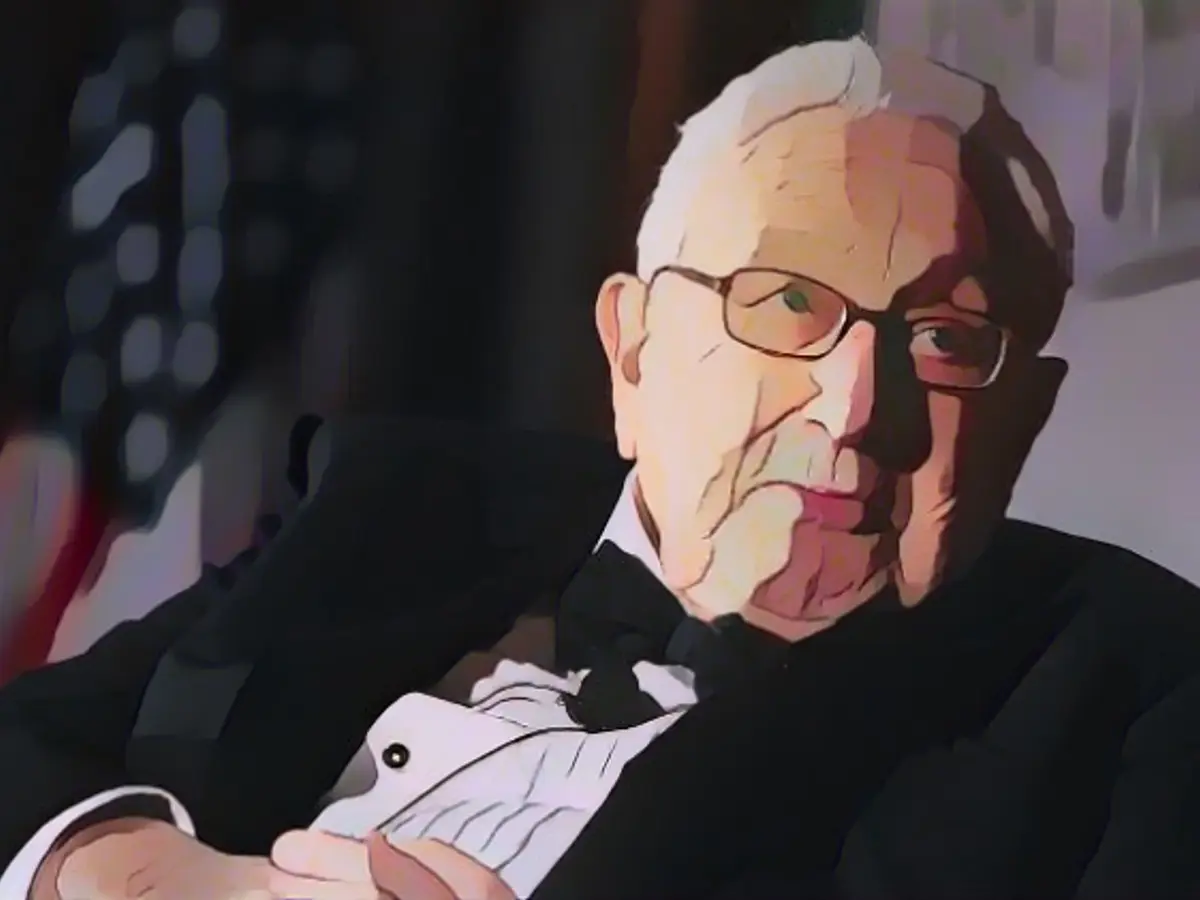The tough real politician with few friends
He was a kind of pop star of international politics: German-born Henry Kissinger. In the 1970s, he played a key role in shaping US foreign policy and was awarded the Nobel Peace Prize in 1973. However, the work of this staunch transatlanticist remains controversial to this day.
His advice was in demand right up to the end, and Henry Kissinger caused a stir and sometimes great outrage. "I think that by the end of the year we will be talking about negotiation processes and even actual negotiations," said the former US Secretary of State with German roots on the Russian war of aggression against Ukraine, for example. There is also a "good chance" that China's President Xi Jinping will "take my call". This also applies to Russian ruler Vladimir Putin, to whom he does not attribute sole responsibility for the war in Ukraine in an interview with Die Zeit.
Although Kissinger had no longer been at the forefront of US foreign policy for almost half a century, his advice was in demand. When their time allowed, European leaders sought out Henry Kissinger to discuss foreign policy issues with him or to be briefed on US domestic policy. For example, Sigmar Gabriel did so after taking office as German Foreign Minister in early February 2017. "Kissinger is still a good advisor for good transatlantic relations between Germany, Europe and the United States," said the SPD politician during his visit to the USA.
Even President Donald Trump, who is said to be somewhat resistant to advice, met with Kissinger before he took office to take a lesson in foreign policy. This was despite the fact that Kissinger, a die-hard Republican, had spoken out against the real estate billionaire during the 2016 election campaign. Kissinger explained his decision by saying that Trump's rival Hillary Clinton was the candidate who stood for the "traditional, outward-looking, internationalist model" of US foreign policy. Isolationism and protectionism were not his cup of tea. Kissinger favored a well-functioning transatlantic connection between the United States and Europe.
It was the personal experiences of the scion of a Jewish family that were to determine his later political actions, as he experienced the Hitler dictatorship in Germany as a child. "I didn't suffer as much as my parents," he once said. Born Heinz Alfred Kissinger on May 27, 1923 in Fürth, Franconia, he emigrated to the United States with his parents and younger brother in 1938, and Heinz became Henry. Relatives of the Kissingers who remained in Germany were murdered by the Nazis. Despite all this, Kissinger remained attached to his home town - and to the Greuther Fürth football club, whose first division home game against FC Schalke 04 he attended in the stands at the ripe old age of 89.
Fascinated by foreign policy
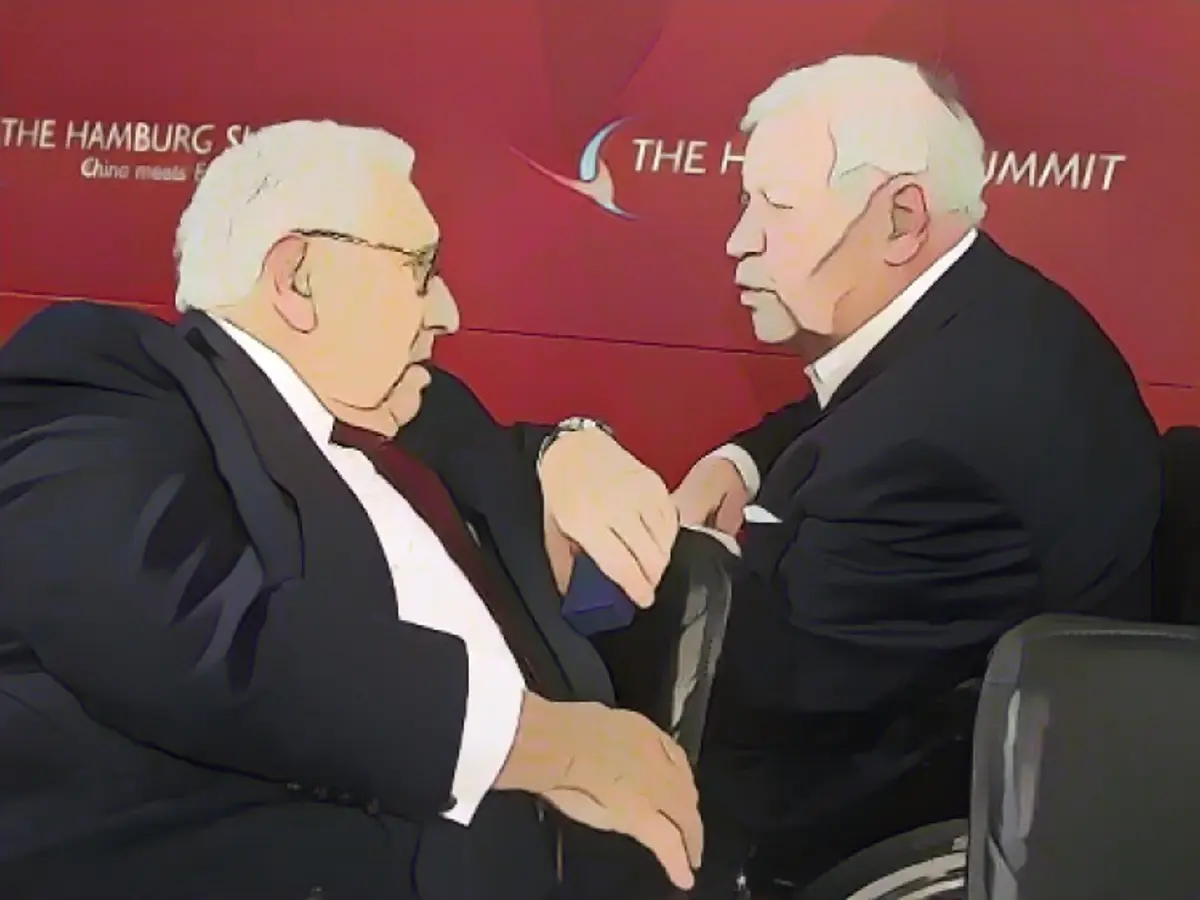
Kissinger's relationship with Germany also remained close, and he harbored no feelings of revenge - not even when he first returned as a US soldier towards the end of the Second World War. Kissinger, who was first sent to Krefeld and then to Bensheim in Hesse, headed a counter-espionage department. He helped to set up the administration, investigate war crimes and pushed ahead with denazification. The young man trusted the Germans to build a functioning democratic system.
Kissinger's life was politics. The Franconian was to become foreign minister, more was not possible for someone not born in the USA. And foreign policy already fascinated the young Kissinger, who completed his doctorate at Havard University in Cambridge, Massachusetts, and later taught there. Helmut Schmidt, who remained closely associated with Kissinger until his death in November 2015, referred to his book "Nuclear Weapons and Foreign Policy". For the German Chancellor, who was in office from 1974 to 1982, it was one of the most important works for understanding deterrence strategy. It was therefore only logical that Kissinger not only pursued a teaching career, but also entered the depths of politics at the same time. He was an advisor to New York Governor Nelson Rockefeller and worked intensively on arms control and disarmament issues. His work and advice did not go unnoticed in the White House. Democratic presidents John F. Kennedy and Lyndon B. Johnson, as well as their Republican successor Richard Nixon, held the strategist in high regard.
"He demanded perfection"
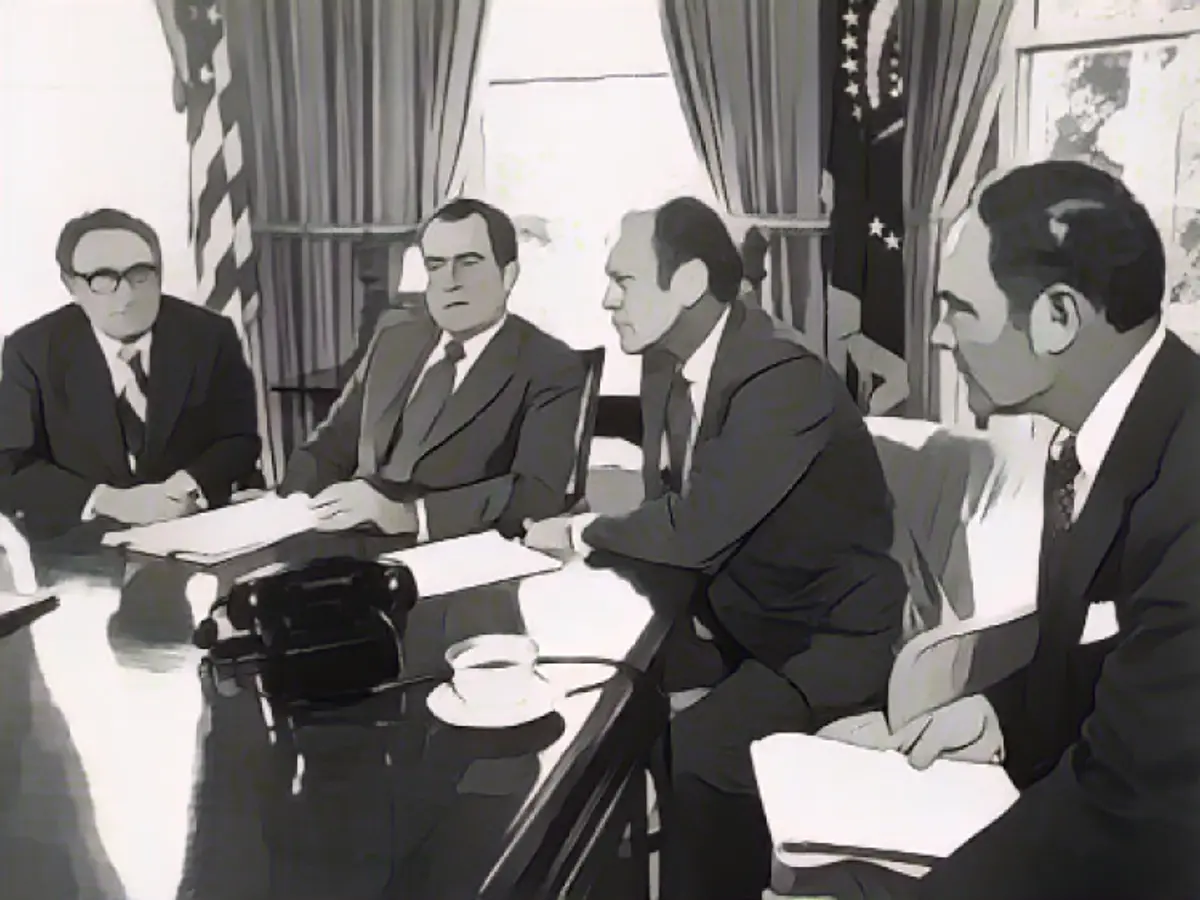
However, Kissinger only came to the levers of power after Nixon took office in early 1969. He did not actually think much of the new president, whose complicated personality structure also caused problems for other staff members. But Nixon, who "inherited" the Vietnam War from Johnson, had promised during the election campaign to bring American soldiers back from Southeast Asia and negotiate a "peace with honor". However, Nixon was completely overwhelmed with this task, especially as communist North Vietnam, together with the South Vietnamese Vietcong, refused to accept the Thieu regime in Saigon as demanded by the US President. Kissinger became Nixon's security advisor.
His staff did not particularly like Kissinger and he had few friends. "He was a tough and demanding boss. He demanded perfection," said Kissinger's colleague Brent Scowcroft, who later became security advisor to Presidents Gerald Ford and George Bush senior. It was a time of secret diplomacy, which Kissinger had to pursue on Nixon's instructions. At the same time, in order to achieve the goal of an honorable peace in Vietnam, the USA stepped up the air attacks on North Vietnam and extended the war to Cambodia.
Nobel Peace Prize and dirty hands in Chile
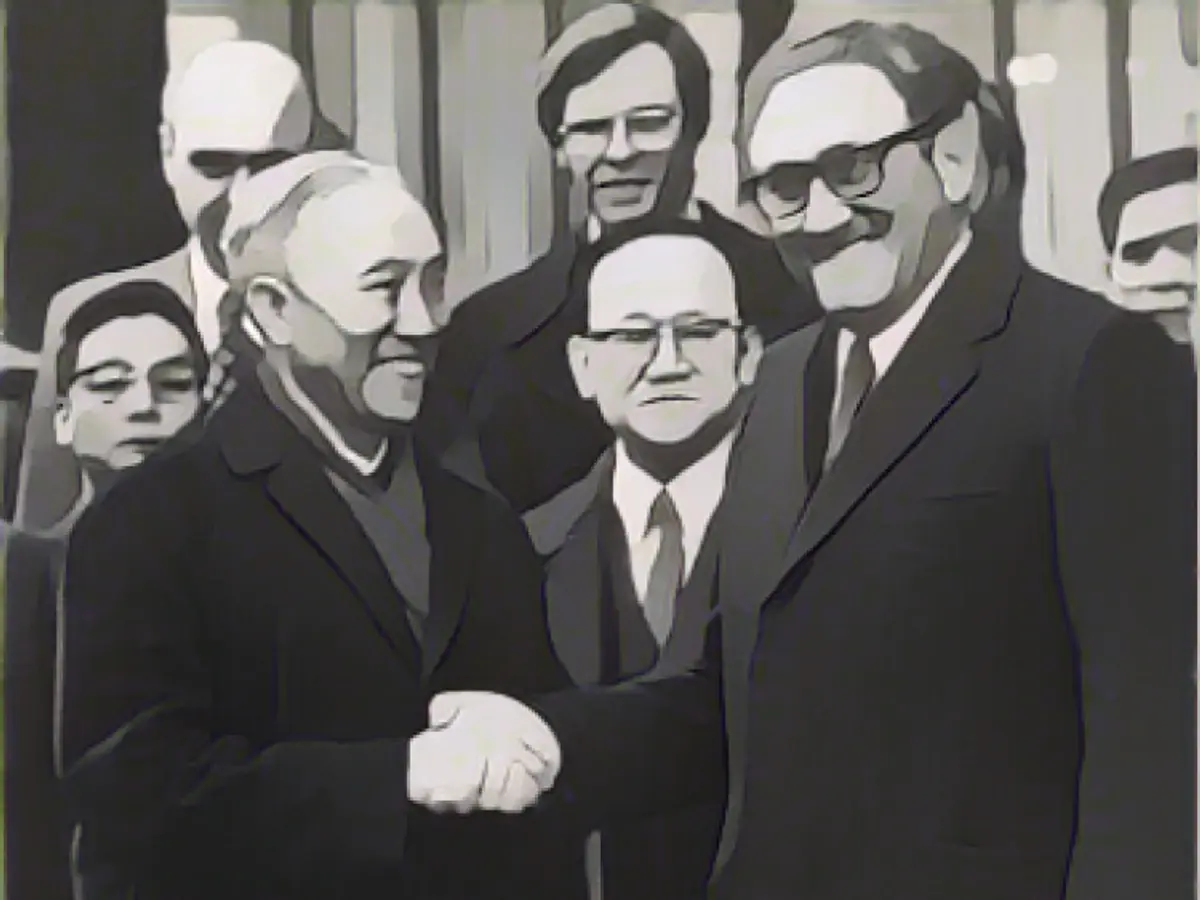
Peace negotiator and conflict aggravator at the same time - Kissinger called it realpolitik, which should lead to the desired result. The North Vietnamese Le Duc Tho became his most important interlocutor. The negotiations led to the Paris Peace Treaty in 1973. Kissinger and Le Duc Tho were awarded the Nobel Peace Prize, which the man from Hanoi, unlike Kissinger, rejected because the war was not yet over. The USA finally withdrew from the war, two years later the regime in Saigon supported by Washington collapsed and the communists took power throughout Vietnam.
Kissinger, who demoted US Secretary of State William P. Rogers to an extra, turned even bigger global political wheels on Nixon's behalf. In 1971, he secretly travelled to China to prepare for the normalization of relations with the Middle Kingdom. The following year, Nixon was received by China's aged ruler Mao Zedong. This spectacular visit opened a new chapter in US-Chinese relations. At the same time, he prepared Nixon's summit with Soviet party leader Leonid Brezhnev, who signed the Salt I Treaty on strategic arms limitation and the ABM Treaty on the limitation of strategic missiles in Moscow in 1972.
Kissinger's secret diplomacy also aimed to play the hostile communist powers, the Soviet Union and China, off against each other. He played this diplomatic keyboard masterfully. Getting the maximum out of every situation, morality has no place in realpolitik: This then characterized Kissinger's conduct as Secretary of State under Nixon and his successor Ford. His role in the military coup against the socialist Allende government in Chile in 1973 even resulted in court summonses in several countries. Kissinger ignored them. According to him, the plan to overthrow President Allende originated with Nixon. However, the CIA operations in Chile are said to have been coordinated with Kissinger, as the secret service was subordinate to the National Security Council and therefore to Kissinger.
Shuttle diplomacy in the Middle East
In the meantime, Kissinger was dealing with another flashpoint. In 1973/74, Kissinger played a major role in the peace efforts between the Israelis and the Arab countries. He negotiated the end of the Yom Kippur War. With the Geneva Middle East Conference, Kissinger initiated the first direct meeting between the hostile parties. This involved intensive travel between the parties to the conflict. This is known as Kissinger's shuttle diplomacy.
Kissinger was undoubtedly a kind of pop star of international politics at this time. This also helped him to politically survive the inglorious end of the Nixon era in 1974 as a result of the Watergate affair. By his own admission, he had nothing to do with Watergate. "How could that happen?" Kissinger asked in public. He had to witness how his president talked his head off and ultimately had to leave the White House in disgrace. Because the affair paralyzed Nixon politically and almost condemned him to inability to act, his Secretary of State experienced a further increase in power.
But this phase was short-lived. Under President Ford, Kissinger remained head of the State Department. However, tensions arose with important people in Ford's immediate environment. Kissinger became a "normal" political figure who had to submit to cabinet discipline. Kissinger was pained by his dwindling political influence. Ford's 1976 election defeat to Democrat Jimmy Carter also meant the end of his tenure as Secretary of State.
Also a hate figure
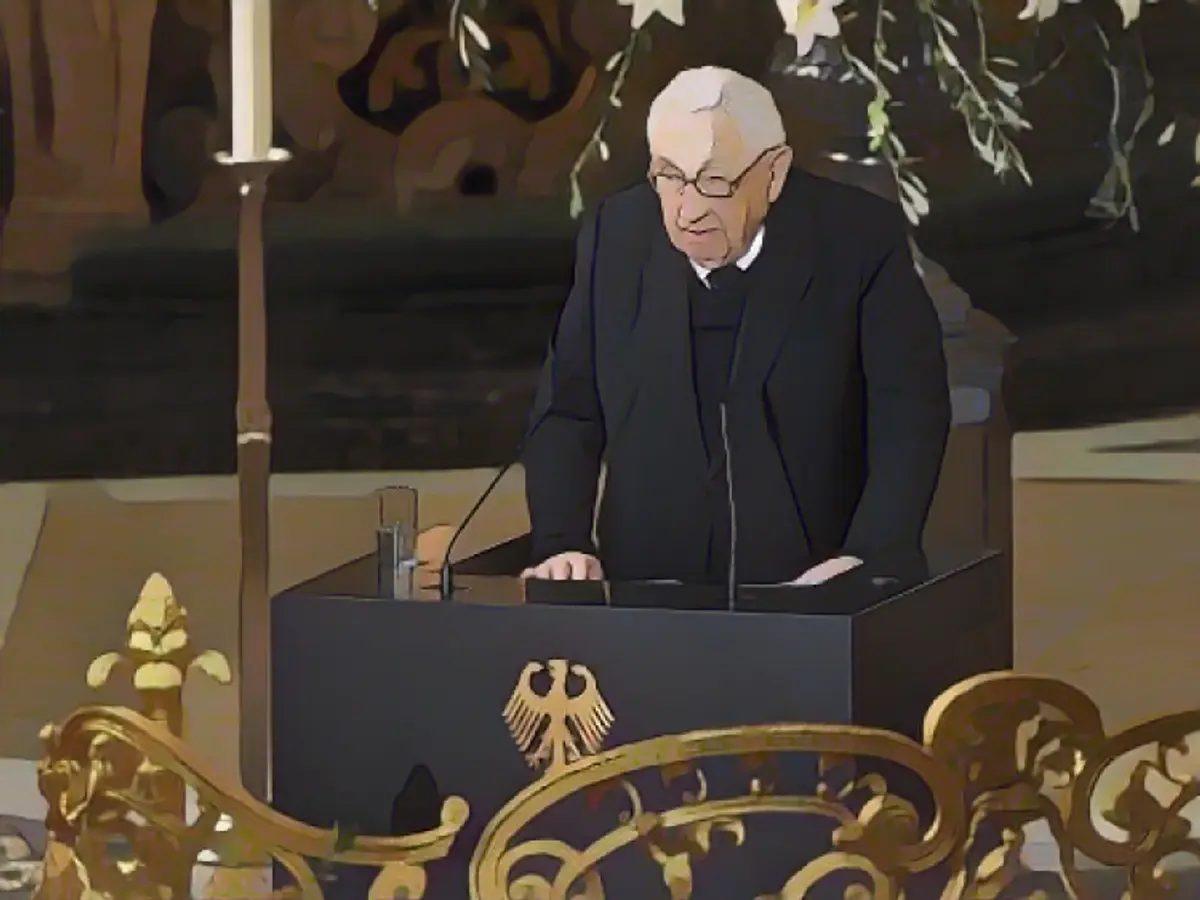
Things became quieter around Henry Kissinger. From 1977 to 1981, he was director of the US think tank Council on Foreign Relations. He advised Presidents Ronald Reagan and George W. Bush and founded his own consulting firm in New York: "Kissinger Associates Inc.". His clients included corporations from all over the world. Kissinger made a lot of money from this. He was a participant in the legendary Bilderberg conferences. In addition, there were well-paid lectures and trips, which repeatedly took him to Helmut Schmidt in Hamburg, among others. Kissinger said of the former German Chancellor at his coffin: "He was a kind of world conscience."
He could not claim that for himself. The USA's support for military coups and dictatorships during his time in office also made Kissinger a hate figure. In the eyes of his political opponents, he was a Nobel Peace Prize winner and a criminal in one person. He himself never made much effort to approach his critics. Kissinger also gave an explanation: "The real politician believes in values, but he also knows what is feasible." He has now died at the age of 100 at his home in the state of Connecticut.
Source: www.ntv.de
